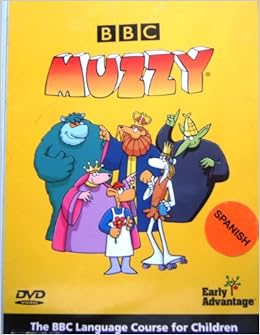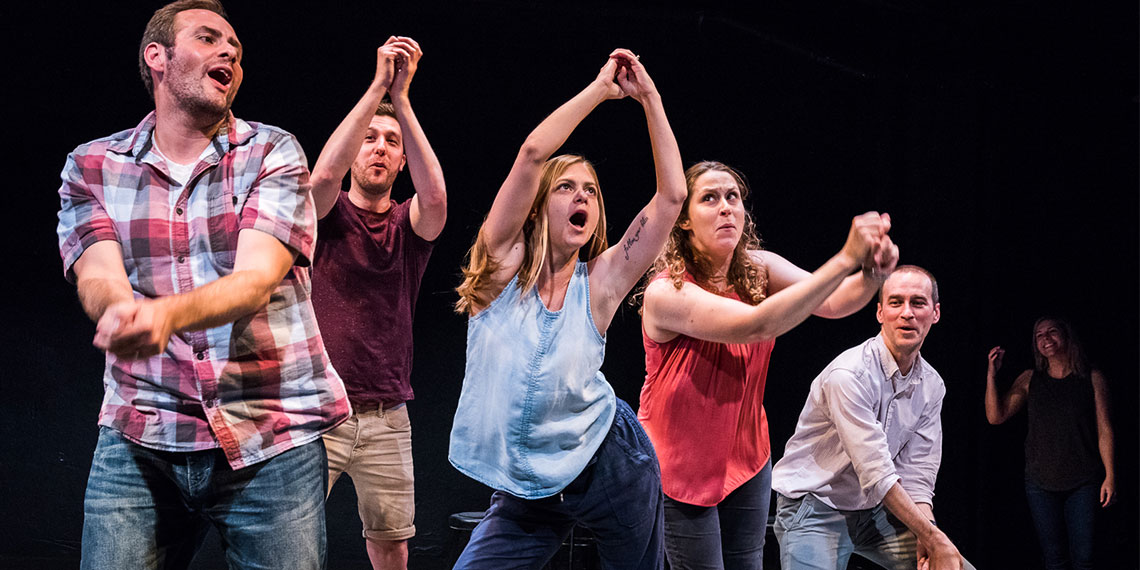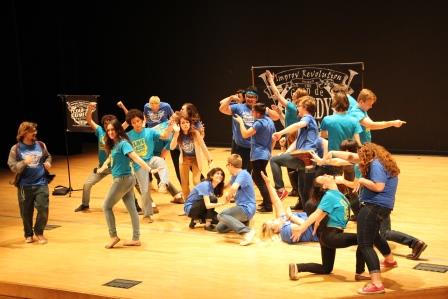The Struggle
Not too many know that English wasn't even my first second language to begin with. It was German and I struggled with it. I passed all the other subjects with ease but not German language. It was hard and needed work and I was... well, lazy. I think I was in fourth grade when all the numbers on my grading sheet were fives (essentially A's. We had 1 to 5 system), except from German that was a three. I just could not put the effort into it. It wasn't fun nor interesting. True, the telly did show a lot of stuff in German. I often watched cartoons on Pro7, SAT1, RTL2 and in my first memories of the Teenage Mutant Ninja Turtles they spoke in German (it was dubbed on RTL2), but it still did not seem to click with me.
Then we started with English at school (the second second language) and that made more sense. It was still difficult, but it was the language I already knew. It was the language they used on my favourite cassette.
The irony is that while I found the cover of this cassette in the internet, I did not find the playlist I remembered. The one we had started with Herman's Hermits "No Milk Today" and it also had their song "I'm Henry VIII I Am" on it somewhere but that is all I remember.
As said before, this was my favourite cassette. I listened to it a lot. So much that the tape got broken many times and I had to carefully fix it with thin office tape - loosing a section while I did it, but leaving the rest of the cassette playable.
I did a bit better in English but what I remember from that time is not the words we learned but the teacher telling me to stop making faces. That was not helpful as these were not bad faces I made. I was like an actor, tuning into the role of English language and used my face as canvas. It just made it easier for me. However, the teacher did not seem to care as much about my skills in English as she did about me getting wrinkles from using the full potential of human face for expressing myself. She hated it. I still have no idea why but it did not help with learning the language.
Second to the first
I was going to change schools and while all the other subjects in the class I was joining were more less on the same level, there was one problem: They had had English as the first second language. This meant I had to put more effort into it.
I spent most of this summer before the new school at my grandparents. They had both been teachers in the old times. Grandfather used to be a teacher of German language and also physical education while my grandmother used to teach English. I remember learning new words and pronunciation in their kitchen. Only later did I learn that my granny had no no concept of accents. For her, there was just one English language - the Queens English. So this was also what I learned.
I think that about the same time they started showing Muzzy in Gondoland in telly and my parents also got the small booklets that came with it. This show was made by BBC, so that was another droplet of accent to my language pool.
I don't remember too much about the English classes after this summer. I think I was quite average, but I did struggle with the rules. If you told me to write a sentence in Past Present my brain froze. However, when there was an example sentence, I instantly found it very easy. I was learning it the same way you learned your mother tongue - how many rules do you know about the language you grew up with? But you still feel the flow and have the overall understanding.
Finding the fun
A change in my attitude to English came in the gymnasium with a new teacher. In the first lesson she wrote "Anything discussed in this class can and will be used against you" on the wall and this soon turned out to be true. You could find the words that we used in discussions in your tests, even if they had never been in the workbooks. However, as I soon learned, synonyms would also do the trick. I had started playing Dungeons and Dragons recently and as I was the Dungeon Master I also had to know all the rules. This meant reading all the core rulebooks and understanding them. Therefore my vocabulary was already quite big.
This teacher had a sense of humour. I once wrote 'being' as 'beeing' in one of my papers and when I got it back there was a drawing of a bee, made with a red pen, next to it - something I will remember for the rest of my life. I also remember getting the papers back with a comment "Not bad, but not the words we had in the workbook." Due to my vocabulary I knew the synonyms and that was good enough - I did not loose any points from these tests. I had the skills obviously, I had just not done the homework.
At this time I had something odd going on with the the accent. I call it my Accidental Accents period. I had no control over them and they had a tendency to change in the middle of a sentence. I often had to read things out loud in the class and I still don't know if it was because I never did my homework or because it was just entertaining to listen to all the odd accents. In any case, it helped a lot.
The hardest thing I did at that time, when it came to English, was reading one of my favourite authors in the original language. I had already read several books by Terry Pratchett, but all of them were translated. Now I picked up a book that was not. It was Thief of Time and I had to read it 3 times before I understood it. Though to be honest I did read it again fourth time years later and the story was totally different.
I tried many methods for learning the words I did not know in the book: underlining them with a pencil, leaving bookmarks, writing them out etc. However, Pratchett uses a very descriptive language and it would have taken me forever to find all the meanings of the words in the early days of internet (I did have a huge and heavy Saagpakk English lexicon at home as did most of Estonian families at that time. It was a book that you could use for killing people and not something you wanted to carry around willingly). So, instead, I mostly just skipped the unknown words, hoping that the context of the material could fill me in. It often did.
By the end of the gymnasium we had national exams and I picked English as one of the subjects I wanted to take the exam in. It included different sections. I don't remember all of them, but there was a radio interview that we had to listen to and fill in blanks in the text based on what we learned. I filled in most of the blanks before listening - the person they were talking to was a world know British author Sir Terry Pratchett. I also remember losing 2 points in the oral part of the exam due to using slang. In total I got 85 points out of 100. Something that was later seen as being above B2 level.
Nowadays
Looking at my bookshelf now, I have more books in English than in Estonian. I have been working in English language for over ten years and to be honest I often even think in English. I would say that while my language skills are not perfect, I'm quite fluent. I do make silly mistakes and typos time to time but I do the same in Estonian.
Even my accent has now settled, sounding a bit British but not specific to an area. Though there is still one thing when it comes to the accent that I have to be careful with. I tend to mirror the accent I hear (just as you start whispering when someone whispers). It's a bit odd and some people with strong accents might feel that I am mocking them - this is not the case. It's just a thing I tend to do automatically and try to be aware of.
I have not lived in England, but I have visited it several times. My first visit to London (was it 7 years ago maybe?) was a bit scary. I knew the language but the speed and accents they had was terrifying (I had the same problem in Scotland a few years later). Also, it was the first time I used tubes and I had to somehow get from the airport to London city centre and to Watford from there. That meant a lot of talking with locals to be sure I did not get lost on the way. While adults usually understood that you were not local and slowed down, the kids did not. It was when I talked to the kids of one of my friends there when I suddenly went in my head "Wow, I can really do this. Thats amazing!"
A few years later I performed in Slapdash improv festival in London with my improv group (improvising in second language) and half accidentally cracked a joke on the stage that was very specific to English language and history. The audience loved it. I was in awe. It worked. I was surprised it did.
 |
| Lovely Rahel and me doing an improvised duo in a second language. |
Just this month I had my first improv duo show and this too was in English.
I feel that the language and the accent are here to stay and sometimes I'm even too fluent, forgetting that others might not have the language at the same level - as it turned out last year in Spain. Asking for a Milkshake from the bar did not work, what you had to ask for instead was Ice Cream Juice.
:format(jpeg):mode_rgb():quality(40)/discogs-images/R-8035419-1453898201-4601.jpeg.jpg)






